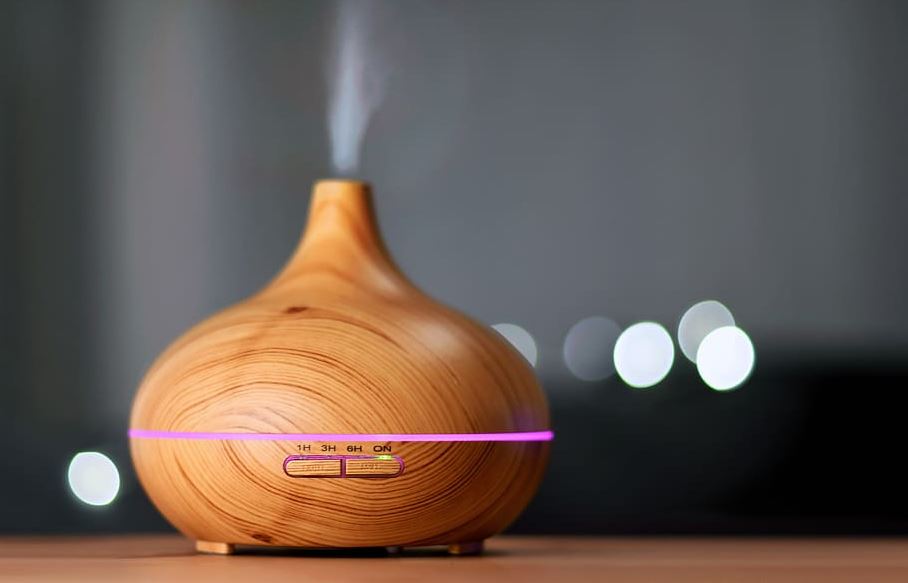Humidifier adds moisture to the air to prevent dehydration, which can irritate many parts of the body. This can be especially useful in the winter when the climate and indoor heating systems can dry out the air and dry out your eyes, nose, lips, and skin. It can also relieve some of the symptoms caused by the flu or the common cold.
You can measure humidity with a hygrometer, consider a humidifier if the humidity level in your house is below 30%, especially if you have frequent sore throats, nosebleeds, or dry skin. However, overusing moisturizers can make breathing problems worse. It is important to know how to use it correctly.
Benefits of Using Humidifiers
Dry and humid air can affect the health and condition of the home. It can draw the fluid from the sinuses, which can increase the risk of nosebleeds or sinus infections. If you have asthma or other breathing problems, dry air can make things worse. A humidifier can also make it easier to breathe when you have cold or other conditions that affect your lungs.
These are some benefits of using humidifiers that can be helpful for your health:
Prevent influenza
According to research about a humidifier, it can reduce the risk of catching a cold. After adding flu viruses to the air with simulated coughing, the researchers found that humidity levels above 40 percent rapidly incapacitated virus particles, making them much less infectious.
Benefits for the home
Humidity from a humidifier is very helpful at home. Any houseplant that loves moisture can come alive, and wooden floors or furniture can last longer. It can also help in the prevention of wallpaper from cracking and static electricity build-up. Moist air can also feel warmer than dry air, alternately can help a person save money on electricity bills in the winter months.
Viruses and Bacteria
The use of high humidifiers can reduce dry air and help in avoiding mild symptoms of flu and cold.
Congestion
The use of humidifiers can prevent you from drying out the nasal cavity.
Snoring
Humidifiers can lessen dry airways that cause wheezing.
Asthma Allergies
Humidifiers are very effective for asthma patients. It can add moisture to the air that can help clear nasal passages that are irritated by allergens.
Hair and Scalp
A humidifier can add moisture to the air, it can prevent you from scalp itchiness, dryness, and dandruff.
Young Children
Humidifiers are also effective for newborn; it keeps their skin hydrated and moisturized.
Types of Humidifiers
There are five types of humidifiers each type you choose will depend on your preferences, budget, and the size of the area you want to add humidity:
Impeller Humidifiers
These humidifiers produce a cool mist with a rotating disk. These are generally child-friendly and use rotating disks, rather than heat, to vaporize water.
Steam Vaporizers
It uses electricity to create steam, which cools before leaving the unit. However, there is a risk of skin burns and one should avoid using steam vaporizers around children.
Ultrasonic humidifiers
Instead of electricity, this unit uses vibration to evaporate water.
Central humidifiers
The central humidifier is directly integrated into the air conditioning or heating system of your home. it is the best option if you want to humidify your entire home but it is the most expensive type of humidifier.
Evaporators
Evaporators use a fan to blow air through a wet wick, filter, or belt. The fan drives the unit and blows moisture into the air from the single unit system.
Humidifiers Sizes
Humidifiers are often classified as personal and console. It is designed to add moisture to the entire house. It can be large, but usually have wheels so that it can be moved easily everywhere you want. Personal humidifiers are the smallest and the best choice like portable devices if you need a humidifier on the go.
Possible Risks of Using Humidifiers
Do not let children touch the humidifier and do not place steam vaporizers in the children’s room, because Burns are the most common injuries associated with humidifiers. Allowing the drive to expel too much moisture can cause condensation to form on the walls. According to EPA, indoor humidity is expected to be between 30 and 50%. The humidity above 60 percent is too high. Anyone who uses a humidifier should also have a hygrometer in the room.
Experts recommend using pure, clean water in humidifiers. Unfiltered tap water may contain higher levels of impurified particles than purified or distilled water. Flush all wastewater between uses. It can grow mold and spread throughout the house. A dirty humidifier can promote the growth of bacteria that can cause coughs and colds.
The humidifier can produce micro-organisms. They are not harmful, but their remainders can be annoying for people with asthma. To avoid this problem, use distilled water. A little humidity in the air can be a good thing, but too much humidity can make it hard to breathe and make some allergy symptoms worse.
Clean the device regularly according to the manufacturer’s instructions to prevent bacterial growth. Wash the bucket and filter system every two to three days during use.
Humidifier VS Dehumidifier
We are often confused between humidifiers and dehumidifiers, but they are very different products. Humidifiers and dehumidifiers are different forms of air conditioners. They condition the air in your home in terms of how humid or dry it is. The difference is that a humidifier increases the humidity by when the indoor air is dry, and a dehumidifier decreases it when the humidity is high.
Typical humidity for most homes is between 30% and 50%. It is best to evaluate your home before choosing between the two. Both units can relieve respiratory conditions such as asthma and chest tightness.
Humidifiers increase the amount of humidity in the air and people use a humidifier in the winter to counteract dry winter air. This helps keep the skin moisturized and limits the effects of allergies and nasal congestion.
A dehumidifier reduces the amount of humidity in the air when it is too humid. In the spring and summer, a dehumidifier is used. A dehumidifier prevents allergies and headaches that appear in summer.


![How To Change HVAC Filter? [Tips – 2022]](https://www.novaairac.com/wp-content/uploads/2021/04/How-To-Change-HVAC-Filter.-500x383.jpg)